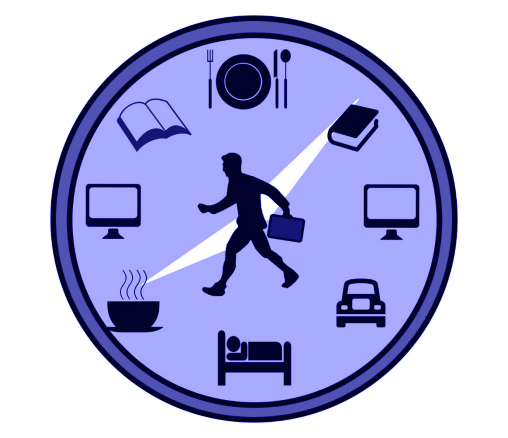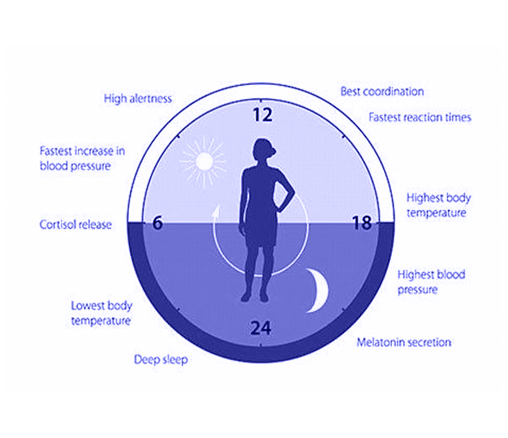CIRCADIAN RHYTHM AND DIABETES
In humans, the circadian “clock” or a 24 hour biological clock is found in the cluster of cells located in a part of the brain called the hypothalamus. The circadian rhythm influences sleeping, eating, heart rate, blood pressure, body temperature, the levels of certain hormones, and the immune system in our body.
Hormones and Circadian Rhythm
Levels of both insulin and the counterregulatory hormones, which work against the action of insulin, are influenced by a circadian rhythm. The counterregulatory hormones, which include glucagon, epinephrine (also known as adrenaline), growth hormone, and cortisol, raise blood glucose levels when needed. In the middle of the night, there is a surge in the amount of growth hormone the body releases, followed by a surge in cortisol, which increases blood glucose production by the liver. In people who don’t have diabetes, these processes are offset by increased insulin secretion by the pancreas, so blood glucose levels remain relatively stable. However, in people with Type 1 diabetes, whose pancreases don’t make insulin, and in people with Type 2 diabetes, whose livers may not respond to insulin well enough to stop glucose production, changes in blood glucose levels during sleep can have a powerful effect on morning blood glucose levels. Blood glucose levels typically rise between 4 AM and 8 AM, an event dubbed the “dawn phenomenon.
Certain conditions called circadian rhythm disorders can disrupt a person’s wake-sleep cycle. Some of the more common of these disorders include “jet lag” syndrome, consisting of excessive sleepiness and lack of daytime alertness in travellers who cross time zones, shift-work sleep disorder, which occurs in people who work night shifts or rotating shifts, and delayed sleep-phase syndrome, in which people fall asleep very late and wake up very late.
Not getting enough sleep or having poor quality of sleep can disrupt blood glucose control in people with diabetes.


